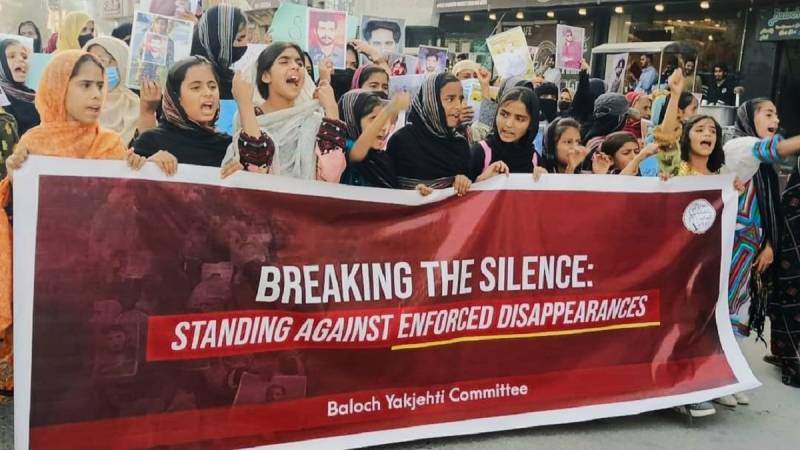
Balochistan, a region abundant in minerals and rich in cultural heritage, is paradoxically one of Pakistan's most marginalised areas. Despite its wealth and affliction of militancy, it lacks attention from the mainstream media, leaving many citizens unaware of the critical issues confronting Balochistan or its people. As I reflect on recent events, it becomes clear that the veil of silence surrounding this region is slowly lifting, yet the journey toward genuine awareness and understanding remains fraught with challenges.
For too long, Balochistan's narrative has been dominated by crises. The mainstream Pakistani media often frames the region through the lens of the so-called Sardari system, low population, and external involvement, which are portrayed as the primary causes of the conflict in the region. What little media coverage there exists of Balochistan typically spotlights the region during significant militant attacks or natural disasters. In contrast, cities like Islamabad, Lahore, and Karachi receive extensive media attention, effectively sidelining the voices of Balochistan. This neglect creates a knowledge gap that is detrimental not only to the people of Punjab but to the entire nation.
The recent detentions of prominent Baloch activists, such as Dr Mahrang Baloch and Sammi Deen Baloch, underscore the ongoing struggles faced by those who dare to speak out. Dr Mahrang Baloch, who was named by Time magazine as one of the world's 100 most influential activists, was briefly detained at the Karachi International Airport, where her passport was confiscated without explanation. Similarly, Sammi Deen Baloch, a vocal advocate for families of Baloch missing persons, found out that her name had been placed on the Exit Control List and thus was barred from travelling out of the country by the very institutions which are meant to protect her rights. These incidents highlight the oppressive atmosphere that activists endure, prompting the question: if these voices face such challenges in Pakistan's largest city, what must be happening to them in Balochistan?
The situation is further complicated by media outlets which claim to showcase a positive image of Balochistan and are funded by the provincial government. These channels obscure the harsh realities on the ground, perpetuating a narrative that fails to reflect the lived experiences of Balochistan's residents.
However, change is on the horizon. During a recent visit to Islamabad, I was invited to speak to Baloch students, and I discussed the state of journalism in Balochistan and the importance of indigenous voices.
The time has come for the government and the media to acknowledge Balochistan's significance and empower the voices of its residents rather than suppress them
During this visit, while having breakfast at a restaurant in Rawalpindi, I overheard local people discussing militancy in Balochistan in the native Punjabi language. It was unclear whether they noticed us or if Balochistan was a regular topic of discussion at breakfast tables in Rawalpindi's restaurants. Nonetheless, it signified a shift—Balochistan is now a topic of conversation even in the bustling streets of Punjab, home to the majority of Pakistan's population.
A stark example of this shift was witnessed during a press conference recently held by Baloch students in Bahawalpur, who were protesting the reduction of seats dedicated to them in the university. Instead of addressing their concerns, journalists fixated on demanding that the students condemn rising militancy in Balochistan, showcasing a fundamental misunderstanding of the student's objectives. This interaction highlights the ongoing disconnect between the media and the real issues faced by the people of Balochistan.
It is evident that the tide is turning. The issues plaguing Balochistan can no longer be ignored. More importantly, information about what goes on in Balochistan is no longer confined to the province but makes it to breakfast tables in the country's power centres.
The government must recognise that Balochistan is not a hidden corner of the country, nor can it keep what happens there quiet anymore; it exists and deserves attention and respect.
In this era of information, it is crucial for all citizens to be informed about the struggles of their fellow countrymen. The silence that once surrounded Balochistan is breaking, and it is imperative for everyone to engage with its realities. The time has come for the government and the media to acknowledge Balochistan's significance and empower the voices of its residents rather than suppress them.
Balochistan is a narrative waiting to be told, and it is our responsibility to ensure that it reaches every home, from Islamabad to Karachi and beyond. The truth can no longer be hidden.

